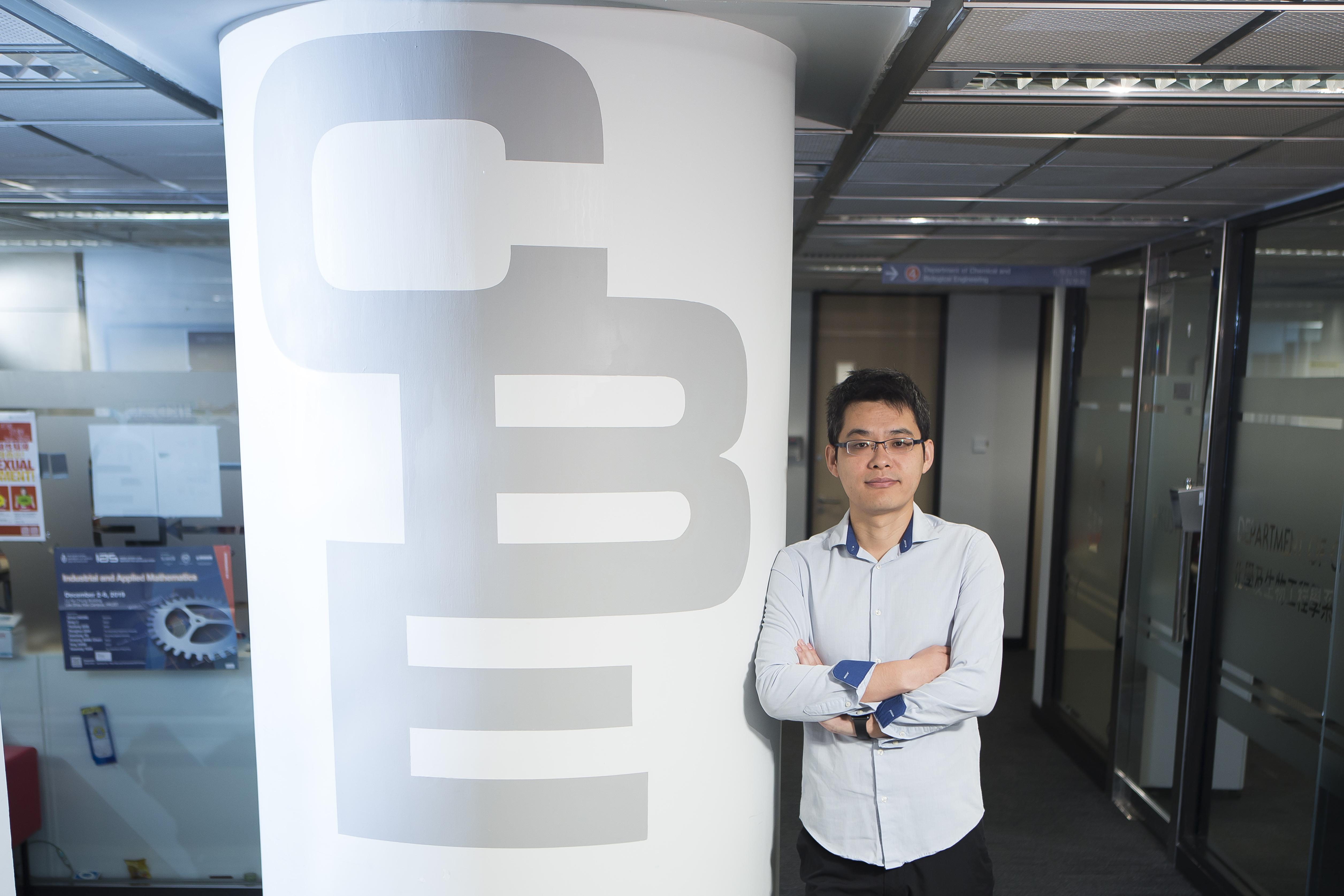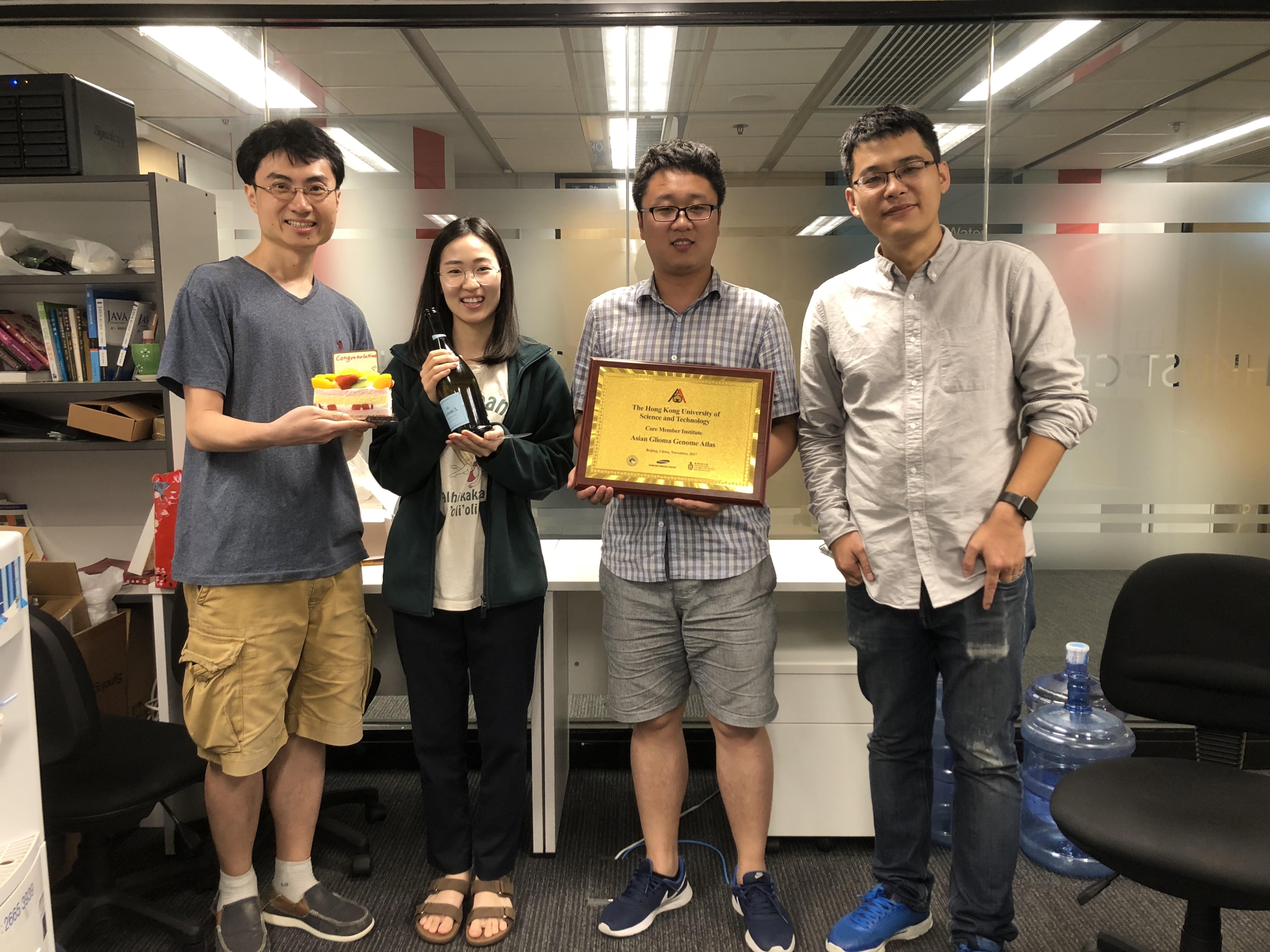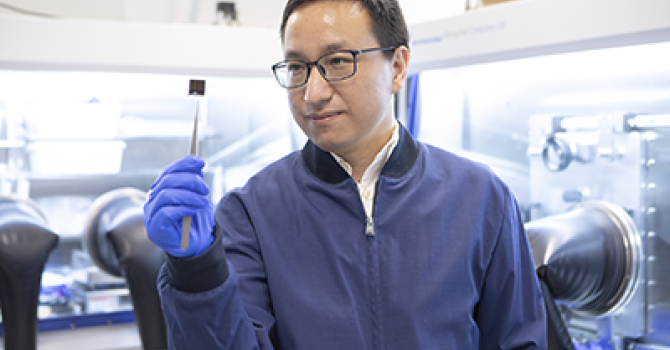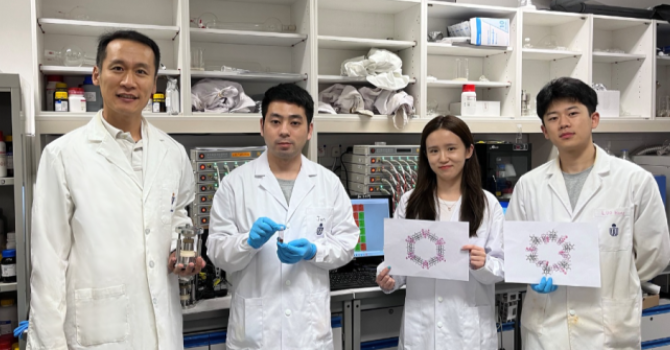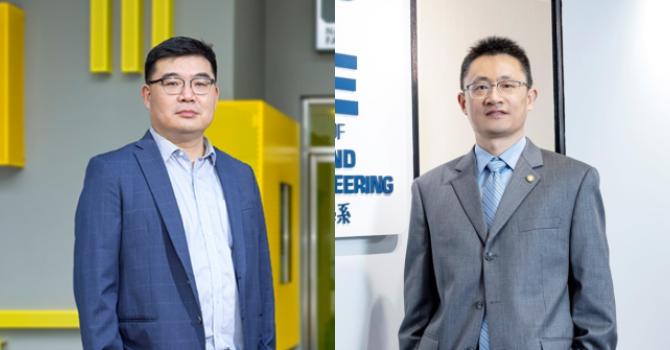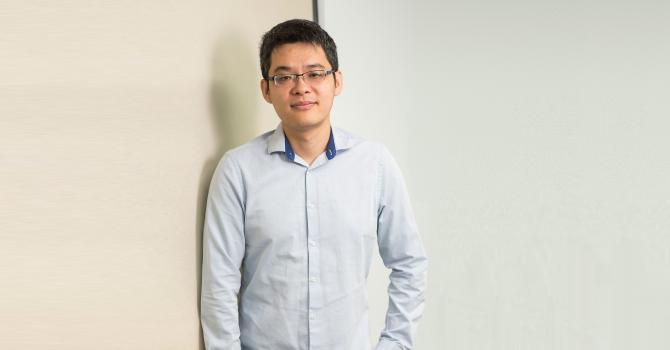Prof. Jiguang WANG Marries Math with Biology to Help Find Cure to Rare Brain Cancer
Traditionally, mathematics and biology were considered to be two separate streams. Prof. Jiguang WANG on the other hand, an applied mathematician having a crossover with bioinformatics, is shedding light on biomedical research to give hope to patients with one of the deadliest types of cancer.
Uncovering the mutational mechanism of secondary glioblastoma (sGBM), a rare and an extremely deadly brain cancer, and discovering mechanisms to explain why glioma patients progress into sGBM and develop chemo-resistance, Prof. Wang is pivotal in the development of a gene-guided treatment that has prolonged lives of some patients.
Determined to bring hope
“Young kids with malignant brain cancers were running around in hospital wards but some of them were going to die within months. Parents of babies, severely sick, did not know what to do. Some doctors told parents to give up since surgeries would only prolong the pain of their kids and could hardly prolong their lives for more than a year,” said the young HKUST assistant professor with joint appointments at the Division of Life Science and the Department of Chemical & Biological Engineering, recalling his work-related visits to hospitals.
“This is very sad. As a parent of two kids, I do not want to see this desperation in others. Hoping to help patients and parents see the future, I encourage my students to work harder together.” The strong will to help others becomes huge driving force for his research and studies.
The kind-hearted scientist aspired to help others since a young age. “As a child, I wondered why people got sick and how they got healed. Fascinated by mathematics and physics, I had the dream of becoming a scientist when I grew up.”
Born in Hebei province in Mainland China, he was raised in a family of teachers. Interestingly, his educated and liberal-minded parents always encouraged him to go out and play, and did not give him much pressure.
Being self-motivated, the young Wang was a frequent winner of national mathematics competitions. Achieving First Class in the Chinese Mathematical Olympiad during the last year of senior high school, he was admitted into the Beijing Institute of Technology directly and was waived from taking the National College Entrance Examination.
It was the time when information technology was hottest and the big data era was coming. There was a saying in China, “If you master the skills of mathematics, physics and chemistry, you can go anywhere in the world without fear (學 好數理化,走 遍 天下都不怕 ).” As an undergraduate student of Information and Computational Science, Wang continued to reap awards in competitions including the Chinese Contemporary Undergraduate Mathematical Contest in Modeling, and the four-day International Mathematical Contest in Modeling during which team members stayed awake overnight to work out solutions.
All sciences become mathematics
With superb performance, he was accepted by the Master-cum-PhD program in Applied Mathematics specializing in Operations Research and Cybernetics from the Academy of Mathematics and Systems Science (AMSS) of the Chinese Academy of Sciences (CAS). He had the postgraduate entrance examination waived because of his outstanding academic results.
He later pursued postdoctoral research at Columbia University in the United States, where he was named as an Irving Institute Precision Medicine Fellow. There, he integrated data of cancer patients from different hospitals to learn about cancer mutations. Specializing in computational biology and bioinformatics, he helped biologists and clinicians solve their biomedical problems by analyzing enormous amount of data using statistics and machine learning.
Yet how did the mathematician tackle biological and medical fields professionally? “Be question-driven and ask important questions. When you try hard to answer questions, do not be limited by the method or approach. For instance, when we tackle a rare disease, we cannot be limited by only one discipline. That gives us the motivation to learn new things and not to stay in our own comfort zones. Also, whereas many science disciplines are already well-developed, biology and medicine are relatively young with lots of room for exploration; I like challenges,” the problem-solver replied.
“All sciences, at higher levels, become mathematics. They become data with the need for data analysis, and thus we have to think quantitatively.”
The road less traveled
Glioblastoma (GBM), the rare brain cancer that he is tackling, has seen little research breakthrough in the past 15 years. The disease, affecting three to four persons among 100,000 persons per year, is one of the deadliest types of cancer. While it can be treated with surgery or an oral chemotherapy drug called temozolomide (TMZ), most of the malign tumors would mutate and return again with mortality rate reaching almost 100%. It has no cure and patients on average only survive for 15 to 16 months from diagnosis. So why did he choose this field?
“I want to bring hope to patients. If we can understand the mutation mechanism, there are some chances that people get treated. Even though most attempts may be unsuccessful, we still keep on trying. It is indeed challenging,” said the professor.
To explore GBM from different perspectives, Prof. Wang is working on a few major projects. He leads an HKUST team in his Wang Genomics Laboratory and collaborates with Beijing Tiantan Hospital to uncover the mutational mechanism of sGBM. Analyzing and integrating genomic data of 188 patients with a specifically designed computational model, the team found that about 14% of patients displayed mutations in the gene METex14 – the gene that the team had identified as the major culprit for aggressive progression.
He also plays a leading role in an international team co-led by HKUST, Beijing Neurosurgical Institute and the Spanish National Cancer Research Center (CNIO) that has discovered a mechanism to explain why a subgroup of patients develops chemo-resistance. These findings potentially allow early identification of drug-resistant brain cancer patients. Locally, he is collaborating with the Chinese University of Hong Kong and the Prince of Wales Hospital to expand samples to local patients since the beginning of this year.
Comparing big data among patients in Mainland China, Hong Kong and Korea, the team found that cancer cells of these patients see similar changes after drug treatment, and the changes seem different from those of Caucasians. There are various mutations among Asian patients, who are nevertheless less likely to contract the disease than Caucasians.
“Ultimately, patients will develop drug resistance. Yet knowing why and how that works may help us overcome it.” Prof. Wang recalled that some patients asked him whether or not they should continue taking drugs. Although he is not a doctor and does not provide treatment, he can provide data analysis to help patients receive optimized disease management.
Led by Beijing Tiantan Hospital, a new drug is now undergoing clinical trial, and two patients out of 18 have had good response. Their tumors shrank or were even reduced to become almost non-existent. Their life expectancies have been prolonged for a couple of months.
“I feel driven to help patients suffer less, since research is supposed to serve people. Unlike some other types of cancer that are close to having cures, treatment for GBM has lots of room for improvement. My team published a paper in the journal Cell in 2018, and I believe it was accepted because it really helps people. As data scientists, we develop tools that can be used for this disease as well as other diseases.”
The generous scientist shares his results on open platforms. “Whereas researchers in certain fields may be less open about sharing their findings, in our field people help one another. We get data from others, and we share ours with others.”
Reaping awards
The young professor, who is barely in his mid 30’s, has received a number of awards. He was named a National Natural Science Foundation of China (NSFC)’s 2019 Excellent Young Scientist (EYS), which is one of the most prestigious awards for young scientists under 38 and involves a RMB1.3 million research grant. He is among the first batch of scholars in Hong Kong and Macau to be awarded since it is open to applicants from the two special administrative regions last year.
Prior to that, he has published more than 18 papers with an impact factor higher than 10, including papers in top journals such as Nature, Cell, Nature Genetics and Nature Communications. His study has been selected as China’s top 10 research advances in life science in 2018 by the China Union of Life Science Societies. He also recognized with the School of Engineering Young Investigator Research Award 2018-19 at HKUST.
Being genuinely humble, Prof. Wang stated that he was far from being successful. “I just tried to do whatever I think is important to society and to the world.”
HKUST being family-friendly
The father of two always talked about his two lovely daughters with deep affection and happy smiles. “The best thing about my five years doing postdoctoral research in New York was the birth of my two daughters.”
Today, his daughters aged six and eight enjoy playing at HKUST’s seaside. “I did not see the seafront when I first came for job interview on a foggy day after much jet lag. Then when I came on board four years ago, I found the campus most beautiful and my kids love it.”
He was attracted to HKUST by world-renowned scholars such as Prof. Nancy IP and Prof. ZHANG Mingjie who interviewed him. After talking to department heads and faculty members from dawn to dusk during two fully-packed days of interviews, he knew HKUST was the place to be.
“It is most important to have great colleagues at HKUST. There is good environment, and we are most grateful to be able to reside on this scenic and family-friendly campus.”
Finding one’s own question
Having supervised close to 12 postgraduate students and several postdocs thus far, he is pleased that his students get a variety of awards including the School of Engineering Top Research Postgraduate Award, George K. Lee Foundation Scholarship, School of Science Postgraduate Research Excellence Award, Joseph Needham Merit Scholarship, and one of his former postdocs has already started working at Tencent in Shenzhen.
“Young people need to ask questions; asking questions is more important than finding answers. Students need to ask their own questions, as everyone has a different question in life. Find the right field and right route for yourself, and do not think too much about status and all that. Be yourself, and never give up.”
Needless to say, this altruistic and non-calculating attitude is fully manifested by the young and high-achieving professor himself.
Related links:
- HKUST press release (5 Aug, 2020): HKUST Researchers Uncover Chemo-resistance Mechanism in Glioma Patients
- HKUST press release (8 Dec, 2018): HKUST Researchers Discovered Mutation Route That Helps Find New Therapeutic Lead for Deadly Brain Cancer Patients

